Condolences and statements are pouring in from around the world in response to the shock of the death in custody of the revered Tibetan monk Tenzin Delek Rinpoche. Rinpoche was a highly respected Tibetan spiritual figure and one of the most prominent Tibetan political prisoners. He died on Sunday July 12 in a Chinese prison after undergoing 13 years of detention, torture and brutality.
The Chinese authorities cremated Rinpoche’s body on Thursday 16 July after refusing to release it to his family, thus violating its own laws and it is widely assumed to have been done to avoid an autopsy and enquiry into the cause of death. Rinpoche’s sister, who witnessed the cremation, reported that his “mouth and fingernails were black” and that Chinese authorities continued to decline to offer a cause of death.
At the time of his death the Chinese authorities had blocked social network and other communications because of His Holiness the Dalai Lama’s birthday celebrations and demonstrations, making it difficult to get up to date news.
Rinpoche’s two sisters went to meet him early this month but did not get access to him as the Chinese police kept delaying them. They also told them that Rinpoche was very ill. Then they were told that Rinpoche was dead but they were not allowed to see his body. Family members were denied access to Rinpoche’s body and were told by the authorities that they would handle the cremation and that the family will not receive his ashes. Tension rising as hundreds of supporters gather outside Chuandong Prison.
The Chinese Communist Party have claimed that his death was either natural, or he committed suicide. However many people in the Tibetan exile community believe he was murdered for political reasons, ie his loyalty towards HH the Dalai Lama and his campaigning for the protection of the environment and education for Tibetans in Tibet. Rinpoche held a strong stance on Dholgyal cult groups, educating people about the demerits of worshipping Dholgyal, in line with the Dalai Lama’s teachings. [There is evidence to suggest that the followers of Dholgyal are connected to the Chinese Communist Party, and that the reason for the CCP’s encouragement of Dholgyal is to engender disunity among Tibetans.]
There is some mystery about the death: it is believed that ten days before his death, two people were informed that they could meet Rinpoche but when his sisters went to Chengdu to meet him, the prison authority kept postponing the date for the meeting by a few days. People believe this substantiates the conspiracy theory and planned murder. On Sunday July 12 Rinpoche’s sister was notified of his death but not given details. On Monday July 13, his relatives and other Tibetans in Nyakchu County gathered in front of the relevant office buildings and asked for return of his body but their request was rejected.
The authorities have not released details of any post mortem results or investigation of the evidence to validate the prison authority’s statements saying that cause of death is either natural or suicide.
Peaceful demonstrations have been taken place in Nyachu Zong and Chengdu. Demonstrators have been beaten and shot, and threatened with life imprisonment if they attempt the journey to Chengdue. Vehicles have been confiscated and there have been threats of sackings from official jobs.
There has been worldwide condemnation of the Chinese authorities’ failure to provide medical care for Rinpoche in hospital as he was known to be seriously ill, and for investigation into the cause of his detention as it is widely accepted that he was innocent. There have been worldwide demands that the authorities release the body and provide information about the cause of his death and his treatment in detention, and for investigation into the human rights abuses suffered by people living under Chinese authority.
Rinpoche was originally given a death sentence but this was commuted to life imprisonment following massive campaigns by Tibetans in exile and appeals from international human rights organisations for his release. It is generally believed that Rinpoche was wrongfully accused and fraudulently detained, and denied access to his family or legal representation.
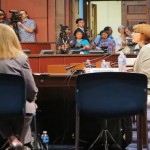
Under Secretary Dr Sarah Sewall, Special Coordinator for Tibetan Issues, Department of State addressing the Tom Lantos Human Rights Commission
Photo: Letitia/tibet.net
Timeline
• News and photos are emerging from Tibet that 15 Tibetans were grievously injured as Chinese opened fired on the numerous people gathered for a peaceful sit-in demonstration demanding that the authorities return Rinpoche’s body. The demonstration took place in front of the administrative office at Yothok Trolung Township in Nyachuka on Monday July 13, the day following the notification of Rinpoche’s death.
• The International Campaign for Tibet reports that the sisters of Tulku Tenzin Delek were temporarily detained in the same prison their brother was held when they refused to sign a document which was told to be their brother’s health record.
• On the morning of July 16, Rinpoche’s body was cremated under strict surveillance, against the wishes of his family and international support groups. Only 32 people including family members and his disciples were allowed to attend his funeral. On hearing the news of his cremation, the family and disciples have written a five point appeal letter to the Chinese government asking for an explanation of the cause of his death.
• His family members and few close aides were allowed to attend the cremation and they claimed that Rinpoche was poisoned as his nails and lips had turned black. They also observed that his body showed signs of having recently gained weight which contradicts his sudden death.
• The ashes of Rinpoche was first handed over to his family but later forcibly taken back by the authorities.
• After the cremation, his home area is under the tight crackdown with deployment of more number of troops watching over the activities of the people.
• There is fear for the safety of Rinpoche’s sister, Dolkar Lhamo and her daughter, Nyima Lhamo who were detained on July 19, a week after they received the news of her brother’s death in prison. While they were returning to their home with Rinpoche’s ashes, police took them saying they will be taken for some questioning and will return to their home with safety. But their whereabouts is still unknown.
• The news of Tulku Tenzin Delek Rinpoche’s death has devastated Tibetans and Tibet supporters around the world.
• Tibetans and support groups called for release of Tenzin Delek and campaigned repeatedly calling for medical parole as he was known to have a serious heart condition and to be in poor health. Despite all efforts, he was denied medical parole, and his followers were denied their last wish of to see him. This has resulted in increased resentment among Tibetans toward Chinese authorities.
• Major non government organisations in Dharamshala organised a prayer service and candle light vigil in Dharamshala on receiving the news of Rinpoche’s death.
• A prayer service was organised by the Central Tibetan Administration’s Department of Religion and Culture at Tsuglakhang, the main temple in Mcleod Ganj, where hundreds of Tibetans and supporters gathered to express condolences and solidarity. The prayer service was presided over by Kasur Kirti Rinpoche, the head lama of Kirti monasteries.
• Students for Free Tibet and the Tibetan National Congress organised a protest at the New York Chinese Consulate, forcing it to shut down.
• United States law makers have called for a tougher policy to put pressure on China
Tibetans and Tibet supporters from Toronto, New York City, Zurich, Paris, and other major cities have staged protests against the Chinese government.
Read more about Tenzin Delek Rinpoche here: 13 years of wrongful detention




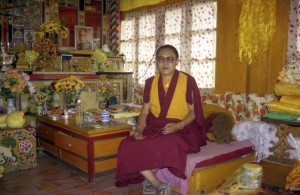
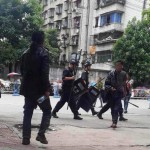
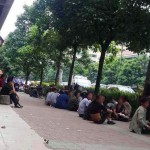
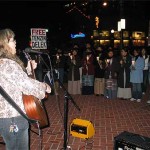
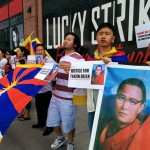
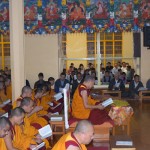
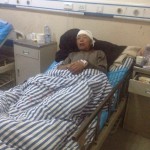

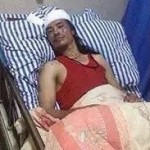
 Print
Print Email
Email